Pros and Cons
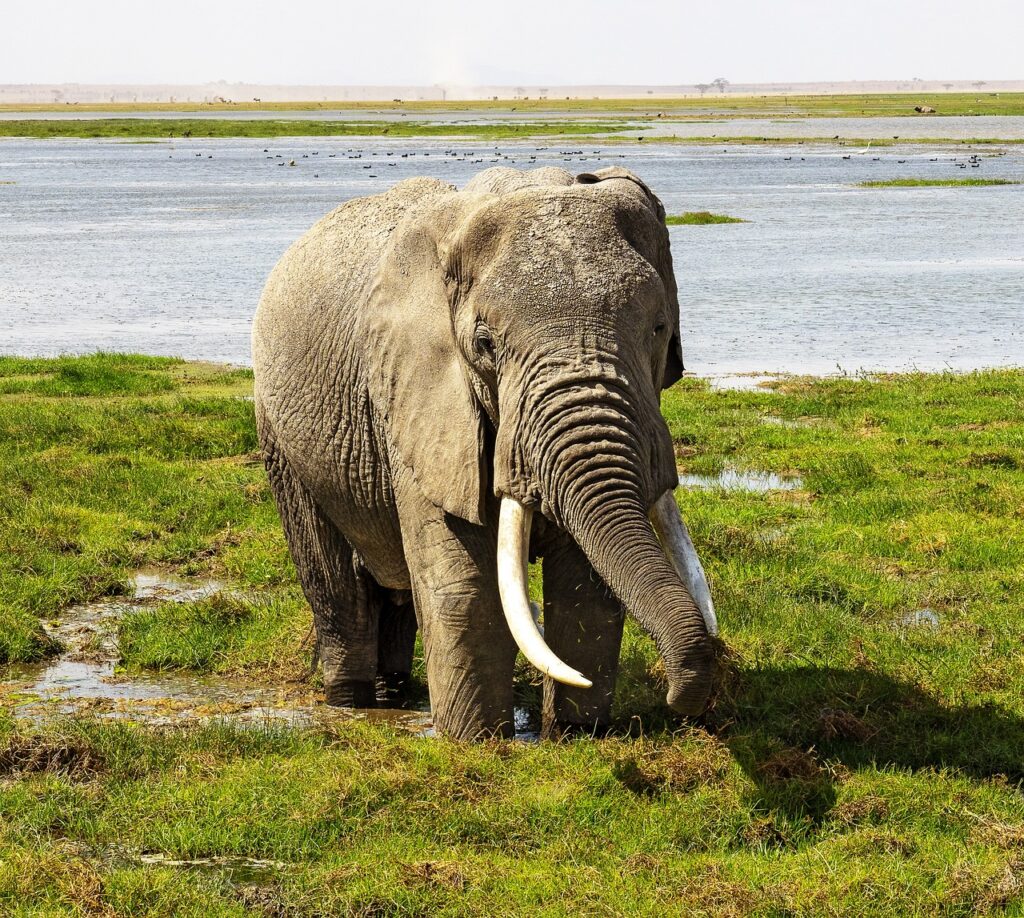
The visitor’s behavior must be ruled always by the highest respect for nature, no matter what is the formal protection status of the area. Keep in mind that our sole presence there is an interference with environment. Parks are protected to preserve the ecosystems they contain, not for our enjoyment, so the fact that we are also allowed to enjoy them is a luxury we must appreciate as such.
General Information
Most safari lodges vary in size and style, and are built to blend in with the local environment.
Accommodation tends to be of rondavel or banda type, with a lounge, central dining and bar in single unit hotels. Do not be misled by the term “tented accommodation” – this tends to be luxurious insect-proof tents and are usually permanently pitched on concrete bases, often including en suite bathrooms with flush toilets.
These are very popular and give the visitor the true experience of being close to nature without the inconvenience and discomfort that can be associated with camping in the open.
Kenya Tourist Information Centre
In the towns, cheaper hotels are definitely avoidable. Prices for higher range hotels vary according to season. Note that although prices may be quoted in US$, payment can be made in all major currency including local currency.
Campsites in national parks and game reserves tend to be very basic, with running water, but only pit toilets. It is strongly recommended that you reserve all your accommodation as far in advance as possible as availability is often at a premium, especially in peak season.
HINTS AND REGULATIONS:::: WHILE IN THE NATIONAL PARK
The following is a set of advice and rules concerning behaviour when visiting the parks. Regulation in each individual park may vary depending on the particular features of the area
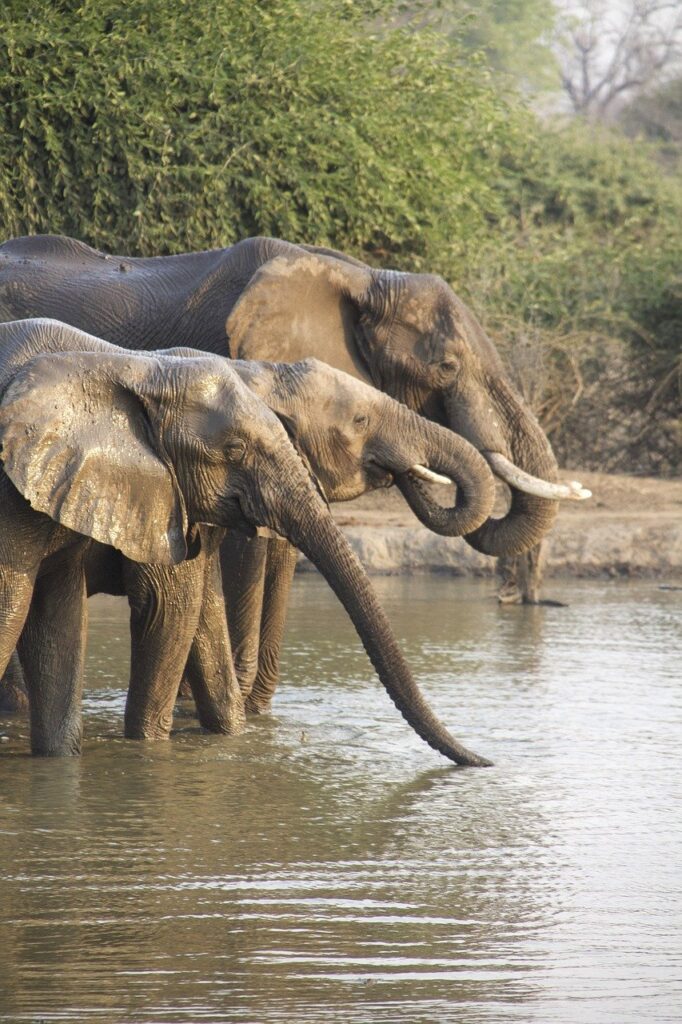
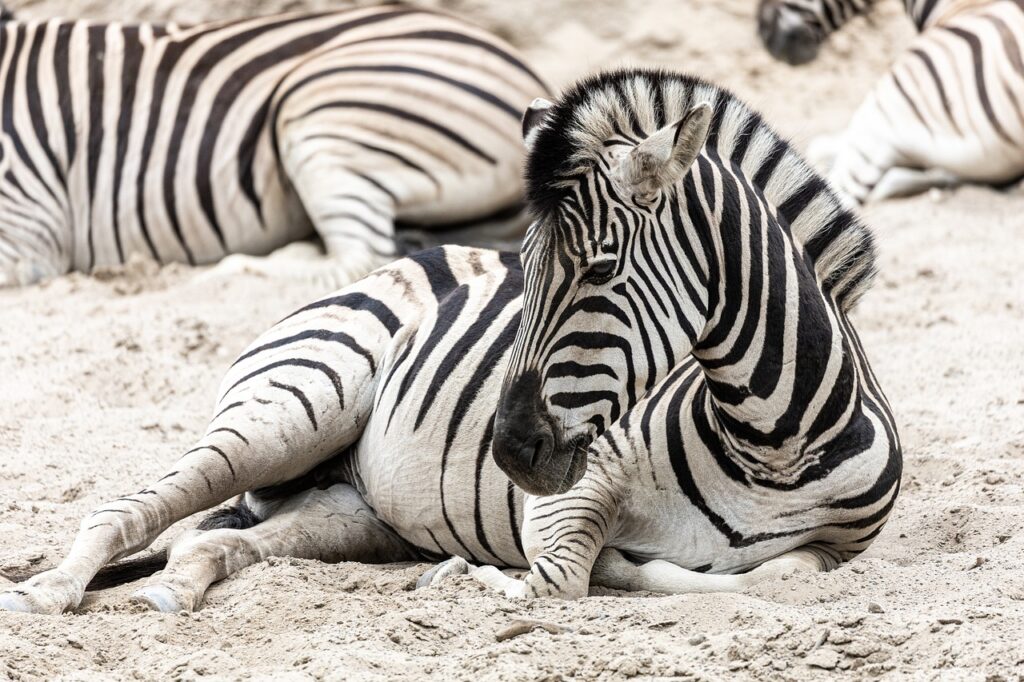
Do not disturb or harass the animals
Never harass the animals. Do not make any noise, flash lights or make sudden movements to scare them away. For wildlife photography, silence is golden. Your vehicle serves as a blind or hide, since animals usually will not identify it with humans. As long as you remain inside the car you do not mean any danger to them, so it is unlikely that you will be attacked. In areas with a serious poaching problem, like Tsavo, you may find some slightly aggressive reactions, because in those regions some animals have learned to associate car with poacher. Never chase the animals and always give way, they have the right of way under any circumstance
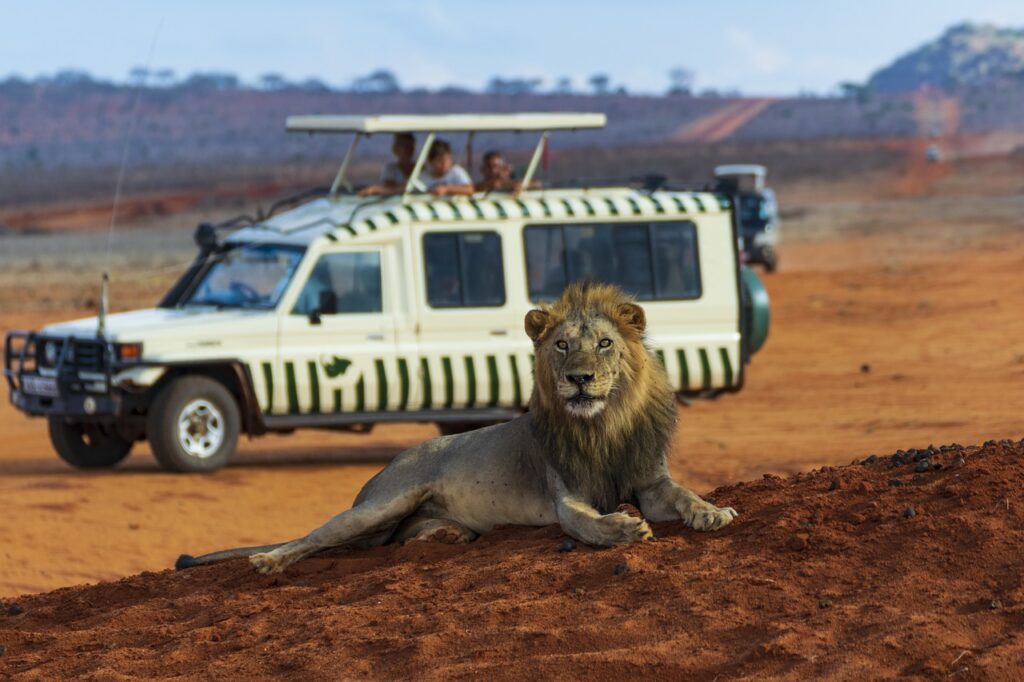
Keep on the well-marked roads and tracks. Off-road driving is harmful for the environment because of smokes, oils and destruction of the grass layer, causing soil erosion and altering the drainage patterns. Also, do not drive through closed roads or park areas. There may be obstacles on the road, flooding, falling rock, etc., or perhaps there is a film crew shooting a wildlife documentary.
Do not throw any litter, trash or cigarette butts. This not only increases fire risk in landscapes that in the dry season become like a huge straw loft, but also animals can eat whatever they find. For the same reason explained above, even your food discards may be harmful for the environment. Needless to say, never light fire.
Do not feed the animals. As you may know if you have pets at home, the fact that they accept your food does not mean it is good for them. The food you provide might produce illness. Even more, this practice alters the behaviour patterns and makes the animals become beggars, that can react aggressively when they do not get what they want. You may tell that baboons do not usually climb on top of the car, as happens in many European Safari Parks. Aggressive behavior in the latter may be caused by the fact that they are acquainted to receive food from the visitors.
Do not disturb other visitors. They have the same right as you to enjoy nature. This applies to many behaviours. For instance, respect the right of the “first spotter”. If you discover a stopped vehicle and you want to check what they are looking at, never hinder their sight nor stop within their photographic field. If there is no room for another car, wait patiently for your turn, the others will finally leave and the animals will still be there. Obviously, keep in silence. When you are peacefully watching animals with your engine off, there is nothing more annoying than another car appearing full of noisy tourists attracting the animals’ attention.
Do not speed in the parks . The speed limit is usually 40 km/h. Speeding ruins the roads’ surface, increases noise and raises the risk to run over animals sitting in the road or crossing.
For your own safety, stay in your vehicle at all times. In all the parks to be visited by car, it is forbidden to leave the vehicle except in designed places, such as picnic sites or walking trails. Some parks are closed to traffic and must be traveled on foot.
Wild animals are dangerous. Despite their beauty and apparently inoffensive aspect, bear in mind that unless you are an expert ethologist, wild animals’ reactions are unpredictable. Do not expose yourself to unnecessary risks, severe accidents have occurred due to an excess of confidence.
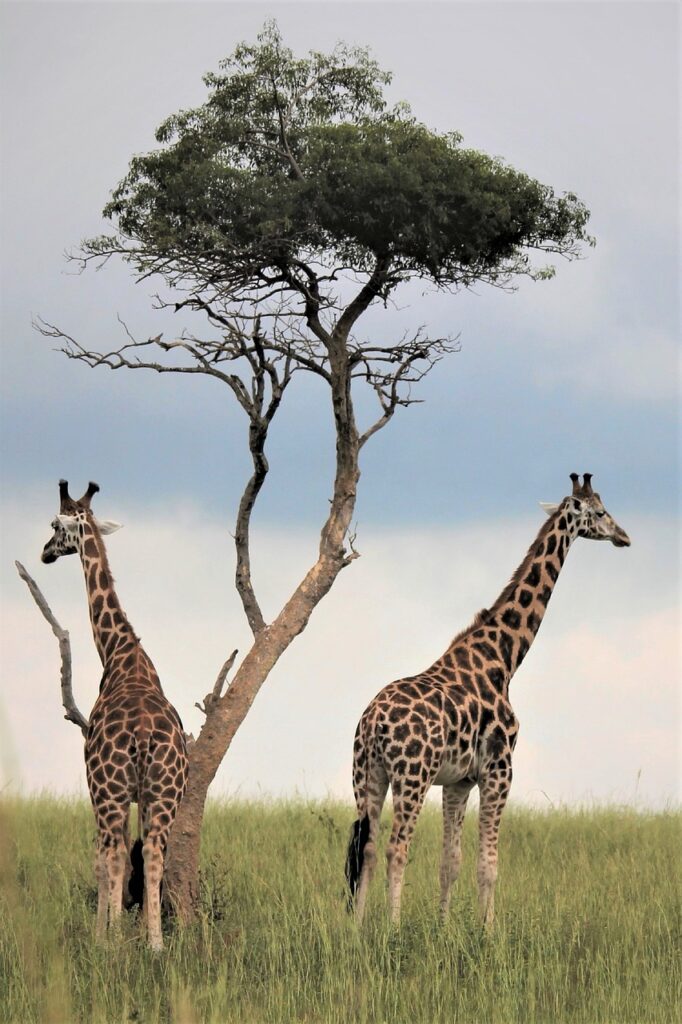
It is mandatory to enter and exit the parks through the authorised gates. Otherwise you will be violating the parks regulation and driving off-road.
Stick to the hours of traffic allowance. It is usually forbidden to drive from dusk to dawn (7 PM to 6 AM), unless you are granted a special authorisation. Overnight you are requested to stay at your lodge or camp site. Some of the parks provide evening or night drives.
Do not purchase whatsoever
Ostrich eggs, ellephant tasks, shells, star fish
Do not take, seize or purchase any organism or parts of it, alive or dead. It is an offence and is heavily fined. Regarding commerce, you will tell that curio shops or dukas no longer sell any items manufactured with animal materials. Still, you might be approached by someone at petrol stations or markets trying to merchandise such products, and possibly the Maasai would attempt to sell ostrich eggs to the passers by. Never buy anything. You could fall into trouble or maybe not, but apart from your personal concerns, you would definitely favour poaching and hence both nature destruction and unsafety conditions in the country.
It is not allowed to bring pets of any kind into the parks and reserves. They could attract predators and can communicate diseases to the wild animals.
Also, do not purchase any shells or other products made from living things. This promotes looting in reefs and strands around the protected areas. Obviously, do not throw litter.
In marine parks, stick to the same behaviour rules. Do not take or harm coral, shells, starfish or any other living organisms. Same as in land parks, it is illegal and hazardous for the ecosystems.
Remember that sea turtles can take plastic bags for jellyfish and they will surely die if they swallow them.
Do not feed the fish, some species can be dangerous and this also disrupts the traditional feeding patterns. Line and bait fishing is allowed in reserves, but not in the parks. Harpoons are forbidden in all cases.
If you travel with small children, keep in mind some special considerations. For children, visiting Kenya is like bringing tales to life, but they usually get tired travelling by car and their feeding is often an issue.
At some lodges like Treetops and The Ark, no children under 7 are allowed. At Mount Kenya Safari Club, children use a different dining room.
If you travel in a group, think about the long hours inside the vehicle sharing little room with other people. Noisy and bickering children can annoy your travelmates and scare the animals away.
Please contact us for family safaris that are especially designed for couples travelling with children.
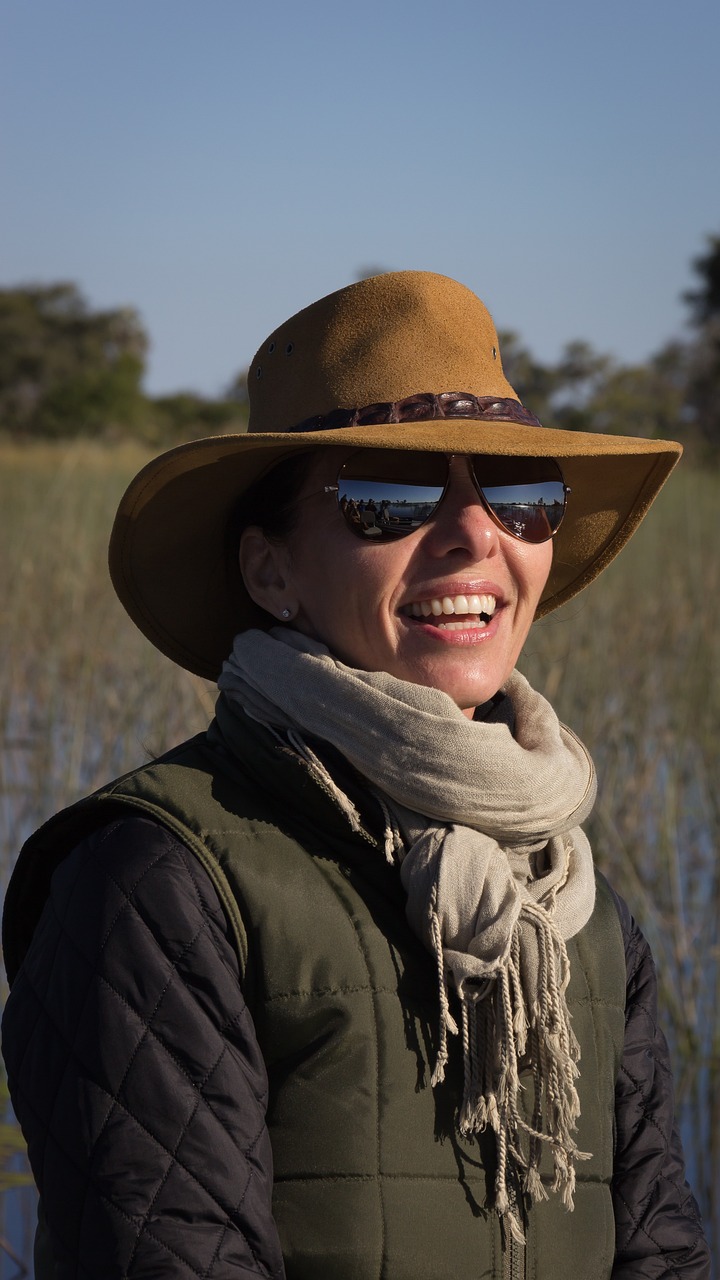
BOOKING A SAFARI
How do I book our a Safari/hotel/car hire with your Company? Complete our Online booking form or send us an e-mail.
What are the basic terms and conditions?
We require 25% deposit within 7 days of issuance by us to you of an invoice, The balance of the cost must be paid (and received 30 days prior to the first day of the tour.
How far in advance should I book my safari? Booking as early as possible in advance is recommended to avoid last minute dissapointments, especially during the high/peak seasons.
Do I need a visa? Visit your nearest High Commission for details and information. Although visas can also be obtained at the airports, it is advisable to apply for the visas in advance at the High commission near to you
Is the quoted price including international flights? Unless stated otherwise, quoted prices in our website do not include international flights
How many people do you take on a safari? Our safaris have guaranteed departures with a minimum of two people and recommend a maximum of 7 persons per safari minibus, and 4 persons for 4×4 for guaranteed window seat
What are the terms when booking a safari with your company? Please see our terms and condition page.
What does half-board, full-board and all inclusive mean?
Half board – Half board means that your breakfast and evening meal is included in the price you have paid.
Full board – This means that all meals during the duration of your stay (breakfast, lunch, and evening meal) are included in the price you have paid.
All-inclusive – Generally this means you receive all meals, snacks, entertainment, accommodation, drinks and safaris.
What is a single supplement?
It is a fee added to single travellers by the hotels, lodges and camps. Our safari prices are quoted based on two people sharing accommodation. If a client takes a room by themselves they have to pay the per-person price plus the single supplement fee.
Can people with disabilities travel in all your Safaris? Yes of course. Please contact us to check the available options.
What if I have special Dietary requirements? Please make sure you inform us in advance so that we can make arrangements with the lodges and camps concerned.
Are the Safaris that you offer safe and secure? All of the destinations that we offer are considered to be safe and secure, and are all well-established destinations and locations.
What medical precautions should we take? Vaccination requirements change from time to time. We suggest you consult your local doctor or health department for information on the latest health precautions. If you are on prescription medication, please ensure you have an adequate supply to last the duration of your stay and a copy of your prescription(s).
What about photography? For those using digital cameras, cameras with 3 Mega pixels or higher are highly recommended. For wildlife photography, a 210 mm zoom lens is the smallest that is recommended for use. Bring extra camera and flash batteries and plenty of film since you may find these quite expensive and difficult to obtain locally.
Why should I book my Safari with African Tours? Because we have the knowledge, experience & commitment to make your safari an Ultimate experience. Should you like to communicate with some of our past clients, please request for contacts, and it will be our pleasure to provide them to you.
